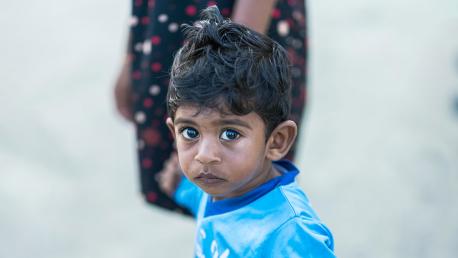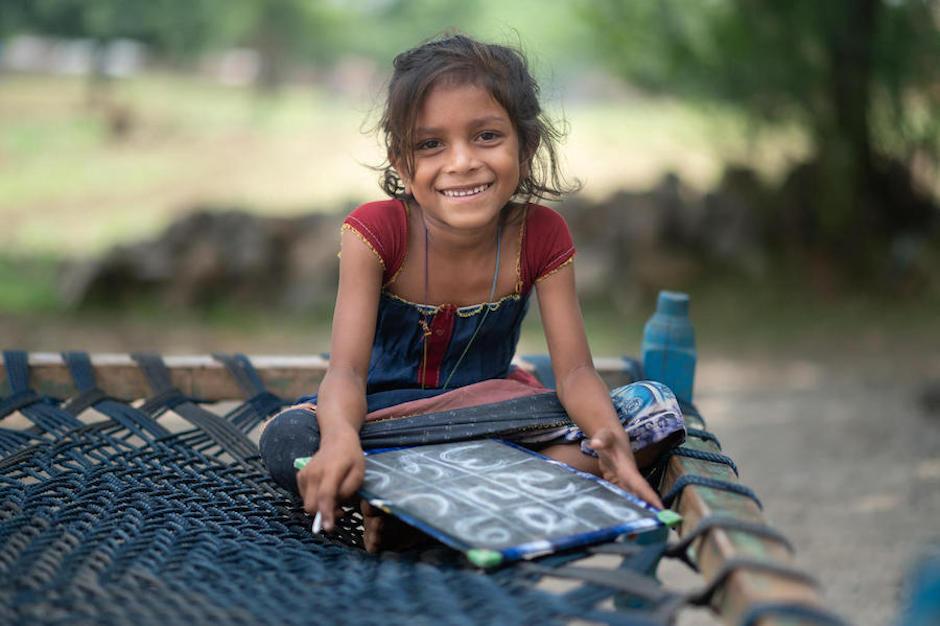
UNICEF in Asia
UNICEF's work in Asia focuses on helping vulnerable children survive and thrive — preventing or mitigating harm in times of crisis, while strengthening health, nutrition, education, social protection and child protection services.
How to help children in Asia
Supporting and protecting children and youth is core to UNICEF's mission in countries all around the world, including in Asia, where many people live in poverty and vulnerable to natural disasters, including extreme weather events and other negative impacts of climate change.
Cyclones, floods and droughts have become more frequent and more intense than ever before. Many places are still suffering the effects of the COVID-19 pandemic on their health and social systems.
UNICEF works with partners across the continent and in the Pacific region to ensure that all children are healthy, educated, respected and protected. Programs aim to meet essential needs, safeguard children's rights and create equitable opportunities for children to reach their full potential.
Key priorities are to prevent and mitigate harm in times of crisis while strengthening health, nutrition, education, social protection and child protection services so that children can not only survive, but also thrive.
Explore UNICEF's work in Asia
UNICEF has active programs and partnerships in South Asia — country offices include Afghanistan, Bangladesh, Bhutan, India, Maldives, Nepal, Pakistan and Sri Lanka — and in East Asia and the Pacific, where programming reaches children in Cambodia, China, the Democratic People's Republic of Korea (DPRK), Indonesia, Lao People's Democratic Republic (Lao PDR), Malaysia, Mongolia, Myanmar, Papua New Guinea, the Philippines, Thailand, Timor-Leste and Vietnam, and in the island nations of Cook Islands, Fiji, Kiribati, Marshall Islands, Federated States of Micronesia, Nauru, Niue, Palau, Samoa, Solomon Islands, Tokelau, Tonga, Tuvalu and Vanuatu.
With partners, UNICEF focuses on:
- strengthening health systems to ensure every child is reached with immunizations against vaccine-preventable diseases
- improving nutrition for healthy growth and development and to prevent malnutrition
- helping children who are out of school get back to learning in a safe school environment
- strengthening mental health services
- improving gender-based violence prevention and response
- expanding social protection systems and emergency safety nets
- increasing the resilience of children, families, communities, services and systems to withstand climate shocks and other crises
How to help Asia's children
UNICEF relies on voluntary contributions from donors — individuals as well as governments, foundations, civil society groups and the private sector — to keep critical programs going and to ensure positive impact for children in need.
Support emergency response when disaster strikes
When families are displaced by conflict or a natural disaster, they urgently need basics like soap and other hygiene supplies. UNICEF Inspired Gift options include an emergency family hygiene and dignity kit containing enough items to last a family of five for at least one month.
A UNICEF Inspired Gift of a tarpaulin — heavy-duty plastic sheeting — can protect a family from the elements by serving as a windshield or groundcover; help create a Child-Friendly Space; or provide shelter over a temporary latrine.
Early Childhood Development kits, designed for children caught in conflict and other crises, contain carefully selected items for caregivers of kids aged 6 and under to engage in activities that are great for building skills and for coping with trauma. With this UNICEF Inspired Gift, you can send enough books and puzzles, stacking blocks and puppets, art supplies and more for 50 children.
Improve newborn and child health and nutrition
Millions of children miss out on essential, routine immunizations every year. UNICEF works with governments and other partners to strengthen local health systems to address gaps in coverage and otherwise strengthen protection against vaccine-preventable diseases.
A UNICEF Inspired Gift of newborn kits for 20 babies includes blankets, prenatal supplements for 20 moms and essential vaccines to protect 20 children against measles, polio, diphtheria, tetanus and pertussis.
A UNICEF Inspired Gift of 900 packets of micronutrient powder, loaded with essential vitamins and minerals for boosting children's immune systems, can help prevent anemia, blindness and brain damage caused by dietary deficiencies.
